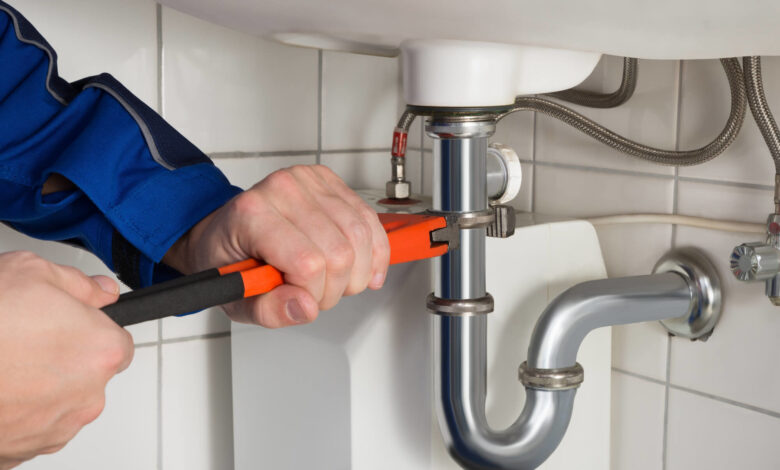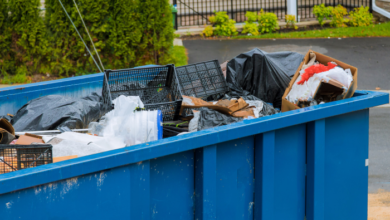Plumbing: The Unsung Hero of Modern Living

Plumbing is an integral part of our daily lives, a marvel of engineering that often goes unnoticed until something goes wrong. It’s the intricate system of pipes, fixtures, and valves that provides us with clean water for drinking, cooking, and bathing, as well as safely removes wastewater from our homes and businesses. In this comprehensive article, we will explore the world of plumbing, from its historical roots to its modern innovations, and delve into its significance and the challenges it faces in the 21st century.
I. A Historical Perspective: The Evolution of Plumbing
Understanding the importance of plumbing begins with a journey through its historical development.
1. Ancient Plumbing Systems
- Mesopotamia: The earliest plumbing systems date back to ancient Mesopotamia, where clay pipes were used to transport water.
- Indus Valley Civilization: The Indus Valley Civilization had sophisticated drainage and sewage systems, demonstrating advanced plumbing knowledge.
- Roman Aqueducts: The Romans took plumbing to new heights with their aqueducts, public baths, and lead pipes.
2. Medieval to Renaissance Plumbing
- Medieval Challenges: Plumbing knowledge declined during the middle Ages, resulting in rudimentary privies and unsanitary conditions.
- Renaissance Revival: The Renaissance saw a resurgence in plumbing innovation, emphasizing hygiene and the importance of clean water supply.
3. The Modern Plumbing System
Our modern plumbing system is a complex network designed to ensure the availability of clean water and efficient waste removal.
A. Water Supply
- Water Sources: Freshwater is sourced from rivers, lakes, reservoirs, and underground aquifers.
- Treatment: Water treatment plants purify and disinfect water before it is distributed.
- Distribution*: An intricate network of pipes carries treated water to homes and businesses.
B. Fixtures and Appliances
- Faucets: Faucets regulate the flow of water for various purposes such as hand washing, cooking, and dishwashing.
- Toilets: Modern toilets use a flushing mechanism to dispose of waste and replenish the bowl with fresh water.
- Showers and Baths: These fixtures provide a means for bathing and relaxation.
C. Drainage and Sewage
- Drain Pipes: Drain pipes transport wastewater and sewage away from fixtures and appliances.
- Sewer Systems: Municipal sewer systems transport wastewater to treatment plants for processing.
- Septic Tanks: In rural areas, septic tanks are used for on-site wastewater treatment.
II. The Unsung Heroes: Plumbers
Plumbers are the backbone of the plumbing industry, responsible for designing, installing, maintaining, and repairing plumbing systems. Let’s explore their crucial role.
1. Education and Training
- Apprenticeships: Many plumbers start as apprentices, learning the trade under experienced mentors.
- Licensing and Certification: Plumbers often require licenses and certifications to demonstrate their competence.
2. Plumbing Services
- Installation: Plumbers install new plumbing systems in homes and commercial buildings, ensuring compliance with local building codes.
- Maintenance: Regular maintenance helps prevent leaks, clogs, and other plumbing issues.
- Repairs: Plumbers respond to emergencies, fixing broken pipes and malfunctioning fixtures.
III. Challenges in the Plumbing Industry
Despite its essential role in modern society, the plumbing industry faces numerous challenges that require attention and solutions.
1. Aging Infrastructure
- Infrastructure Decay: Many cities have outdated water and sewer systems that need extensive repair and replacement.
- Cost of Renovation: Renovating aging infrastructure is often expensive and logistically challenging.
2. Water Conservation
- Addressing Scarcity: Plumbers play a critical role in promoting water-saving fixtures and conservation practices.
- Balancing Efficiency: Water-saving fixtures must maintain performance standards to be effective.
3. Environmental Concerns
- Wastewater Disposal: Proper disposal of wastewater and sewage is essential to protect the environment and public health.
- Sustainability: Plumbers must adapt to eco-friendly practices and materials for a sustainable future.
4. Technological Advancements
- Smart Plumbing Systems: Internet of Things (IoT) technology enables homeowners to monitor and control plumbing remotely, promoting water and energy efficiency.
- Energy-Efficient Appliances: Plumbers must stay updated on the latest energy-efficient appliances and fixtures.
IV. Plumbing Innovations: Meeting Modern Needs
The plumbing industry continues to evolve and innovate to meet contemporary challenges.
1. Water-Efficient Fixtures
- Low-Flow Toilets: Low-flow toilets significantly reduce water consumption while maintaining effective flushing.
- High-Efficiency Faucets: Faucets designed for efficiency preserve water without compromising functionality.
2. Pipe Materials
- Copper: Copper pipes offer durability and resistance to corrosion.
- PVC and PEX: PVC and PEX pipes are known for their longevity and ease of installation.
3. Smart Plumbing Solutions
- IoT Integration: Smart plumbing systems allow for remote monitoring and control of water usage.
- Energy Savings: These systems can help homeowners save on water and energy bills.
Conclusion: Plumbing’s Vital Role in Our Lives
Plumbing is not merely a network of pipes; it’s the lifeblood of our modern world. It ensures our health, comfort, and well-being by providing us with clean water and safe waste disposal. Plumbers, the dedicated professionals behind the scenes, ensure that our homes and businesses function seamlessly.
As we move forward, addressing the challenges of aging infrastructure, promoting water conservation, and embracing environmentally friendly practices are crucial. Plumbing innovations continue to make our lives more efficient, sustainable, and comfortable.
The next time you turn on the tap or flush the toilet, take a moment to appreciate the intricate plumbing system that makes it all possible. Plumbing is the unsung hero of modern living, silently working behind the scenes to enrich our lives in countless ways.



